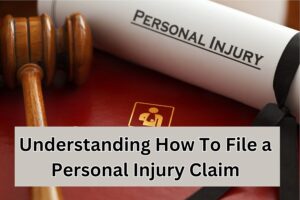Things You Need To Know Before Creating A Will

It’s a good idea to write your will. It helps your family deal with your belongings and inheritance after you pass away. While it may sound simple, you need to have some knowledge about wills before you can proceed.
Wills are part of the legal system and are legal documents that validate the transfer of ownership. But before you sit down to pen down your assets, you’ll need a good lawyer.
The legal system is slightly sophisticated. While you can write that your estate will go to your son, the system wants specifics. The legal system wants to know how big your estate is and how many you own. However, don’t get discouraged. Here’s all the information you need to write a will:
Guardianship Of Children
You can write a will at any point in your life. It’s not unusual to write one when you have children. If you want your children to grow up with a specific family member, make sure to mention that. You will want to specify if you wish certain religious beliefs around your child.
You may also need to write details on how these children will get emotional and financial support in their new homes. If you want your children to get a particular kind of education, make sure to mention that.
Once your children are old enough, you can pass on an inheritance.
Look Into Starting A Trust
If you want to secure your family’s future and contribute to the community, knowing how to create a trust would be an excellent idea.
You will also need to set up a bank account for your trust fund and transfer all your assets into the trust bank account. In the end, when the process is all set, name the people who are called beneficiaries who will get your funds. Mention your trust fund on your will.
List Your Assets
You need to know what is in your possession to help you if you note down the approximate value of each asset. You may also need to include pending mortgages or loans on your assets (if any). If you have a large number of assets, you need to give details. These details will indicate if the properties are yours alone or you share them.
Anything that is jointly owned will go to the person with whom you’re sharing. Joint assets cannot become a part of your will, except the portion you own can go ahead to your beneficiaries. Please keep all the legal documents at hand because replacing them is costly and only extends the process.
Personal Possessions
These possessions are different from assets. Possessions can or cannot have any monetary value because they can be anything from family heirlooms to collectibles. You can list the people who will get a piece of your possessions, and since these items don’t have to have high value, simply naming them is enough.
If you have a bassinet from when your children were young, you can make anyone a beneficiary. Simple possessions like these come under the section of personal possessions.
Appoint An Executor
An executor is anyone who is appointed to carry out the final wishes of your will. They can be a person or even an organization. Once you pass away, they become responsible for your estate. The role is heavy, which is why it is discouraged to appoint anyone from your family.
That is because they can be nuanced and biased about how they want to carry out your will. The person you select should know how to go about managing every element of your choice. If you are unable to find someone, the state will find someone for you. You can also read about state-trusted executors to help you out.
Managing Complex Cases
You may be dealing with some complications when it comes to what you own. There could be paperwork that’s missing, or perhaps you’re unsure how much of the property you want to donate and how much you want to keep.
In some cases, you may not like some of your children to get a piece of inheritance. Following all these extenuating cases, you need to give details. If you lived on disputed territory once again, the court would need to study your subject before allowing the will to proceed.
So don’t try to cut corners, assuming no one follows up. Your property will not go to your children unless the court is clear the paperwork is in order. Other charges also come under complex cases. If you were accused of criminal charges, would it reflect on your property? So ensure you get all these statements out there.
Deal With Lawyers
The best people to draft a will are lawyers. These professionals have the critical information you’ll need on how to help your case in court. They know how you should quote your properties and what numerical values matter.
Courts don’t like ambiguity, so make sure whoever you contact knows enough to help you write a valid will. If you’re not clear, then it becomes a matter of legitimacy. You can also entrust your lawyer as an executor. In most cases, that is plausible since they have nothing to gain from your will.
Instructions About Funeral
While the idea of talking about your funeral may sound morbid, it’s necessary. The whole purpose of writing a will is to prepare your family for your death. So it would make sense to include your funeral. You can state how you want your body buried if you prefer a casket or want to get cremated.
You also need to specify who will carry out your funeral services and where. These details matter to the court because then it becomes a matter of the ownership of your body. The legal system wants to honor your last wish by ensuring you get a proper funeral.
Mention Your Accountant
If you’re prepared to shoulder your expenses, make sure to mention that. Any active account you’ve kept for your funeral will need to go on paper because it will help your children and the court decide how to pay your expenses.
The details need to mention who your accountant is and what accounts they manage. What is the total amount your family will look at, and what to do with the money? You save yourself needless trouble by ironing all these details.
Wrapping Up
Writing a will is essential. It saves your property from getting divided unjustly. Even though it is a detailed process that needs your attention, it would help you know what you need to write.
Some people do it for their infant children while others for their older kids. You don’t have to trickle down your properties to your kids, and you can specify that on your will. A good lawyer will help you draft a proper paper. All you need to do is provide accurate details with the correct information. So when the time comes to share your will, the details are there.






